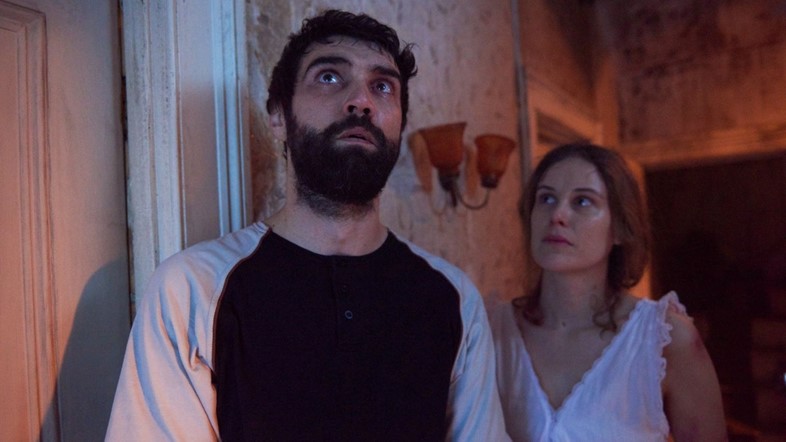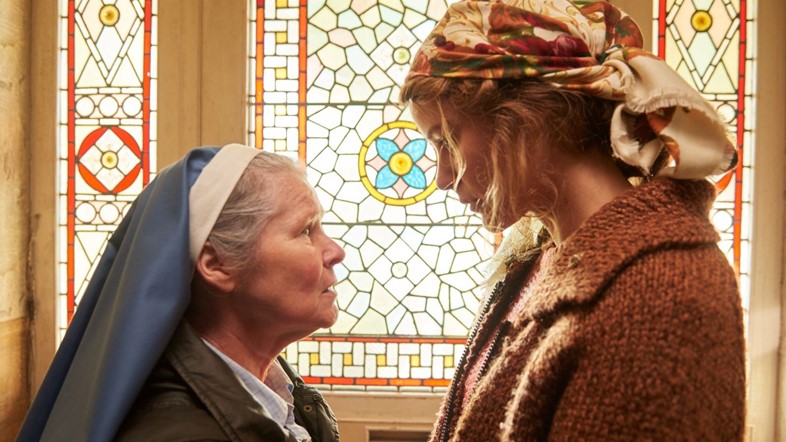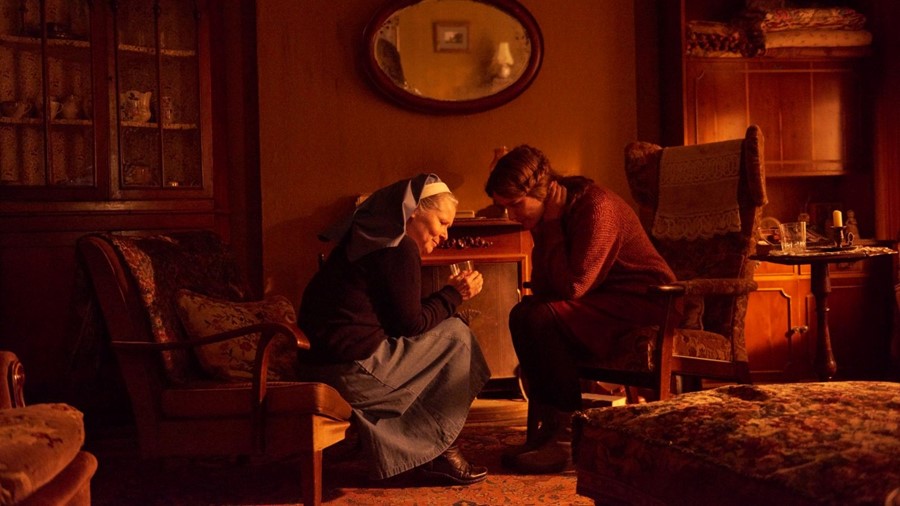The actor speaks on the plight of female directors in the film industry and tells the story of her feature-length directorial debut, a horror story where almost no one is as they seem
Romola Garai realised early on that acting out “other people’s ideas and dreams and the narratives they want to tell” was not going to be enough for her. And while she had a “pretty good career quite quickly”, appearing in films such as Dirty Dancing: Havana Nights, Vanity Fair, and Atonement, it was not something that she had dreamed of doing as a child.
“I started acting, sort of professionally, when I was 17,” she says, “and I more or less fell into it. But I realised, like a few years down the line, that I was somebody who was going to need some kind of other creative outlet.”
Aged 30, Garai stepped behind the camera for the first time with the short film Scrubber. Nine years later, she has unexpectedly joined the burgeoning ranks of British female horror filmmakers with the grisly neo-gothic fantasy, Amulet.

Although the film is a highly accomplished feature debut, dripping with atmosphere, inventiveness, and intelligence, Garai did not always believe in herself. She says that while young men look at directors and see “some that are incredible geniuses, some that are good, and some that are weird”, the women directors she admired growing up, like Sally Potter, “felt like such outliers that you self-select out of it, because you think, ‘Well, they’re female directors because they’re geniuses.’ It just felt like you have to be so amazing to do it that there’s no point even trying. So you sort of shut that mental door.”
This changed when Garai started working with female directors and reading scripts by women. “Then I thought, ‘Oh, that's a door that I consciously shut to myself,’ and kind of went back and opened it.”
Amulet plays with fairy tale archetypes and gender tropes, in a story where almost no one is as they first appear. The film begins as a character study of a former soldier from an unnamed war-torn European country living rough in England, and then segues into horror as he takes up a nun’s offer of lodging in a house along with a young woman and her violent sick mother, who lives in the attic, in return for his DIY skills.

For Garai, sitting down to write a horror film meant first solving what for her was the problem of the protagonist’s gender. “More often than not, the protagonist is female, and it’s the terror and extremity of feeling that she feels that, to some extent, the audience gets off on.” As an actress, she says, she has “struggled a lot with the idea of my own emotions being sold, essentially, like my own relationship with that, and I definitely didn’t want to see that on screen. So that meant a male protagonist.”
Garai toys with our traditional expectations of male-female roles in such tales by making things slippery. Birth is portrayed as brutal and bloody (“It was a difficult and transformative experience for me having children and to some extent my feelings around that definitely went into the script”), and plays a key role in the punishment of the monster.
This all feels very cathartic, and it does not seem like a leap to connect some of the emotions in Amulet to Garai’s own uncomfortable encounter with a monster – she met Harvey Weinstein in a hotel room at the Savoy when she was 18. After this meeting, she believes he spplied pressure through other people to force her to lose weight while filming Dirty Dancing: Havana Nights, in order to “fit his expectations of what a movie star should look like”.
“I’m pretty angry about things to do with men and women and their relationships with each other,” says Garai, speaking generally, “and I think that it probably has something to do with the job that I’ve done, and the fact that in some ways I think I wasn’t greatly suited to it.”
When the “shit came, and it comes to everybody”, she would have been able to “make peace with it”, if she had pursued a life in acting rather than been “encouraged into it as a great job to do if you’re a woman and you’re creative.” Instead, Garai recalls, “I was like, ‘What’s this bullshit I have to put up with?’ So, I was much more taken aback and, yeah, angered.”
She also feels guilty, she admits, “about the role that film and television plays in conforming people’s expectations of masculinity and femininity and policing the way that people think about men and women.” Amulet, then, “to some extent, is a completely cathartic exercise in revenge fantasy, where a terrible punishment is wreaked on somebody who presents as a saviour.”
Amulet is in cinemas now.
